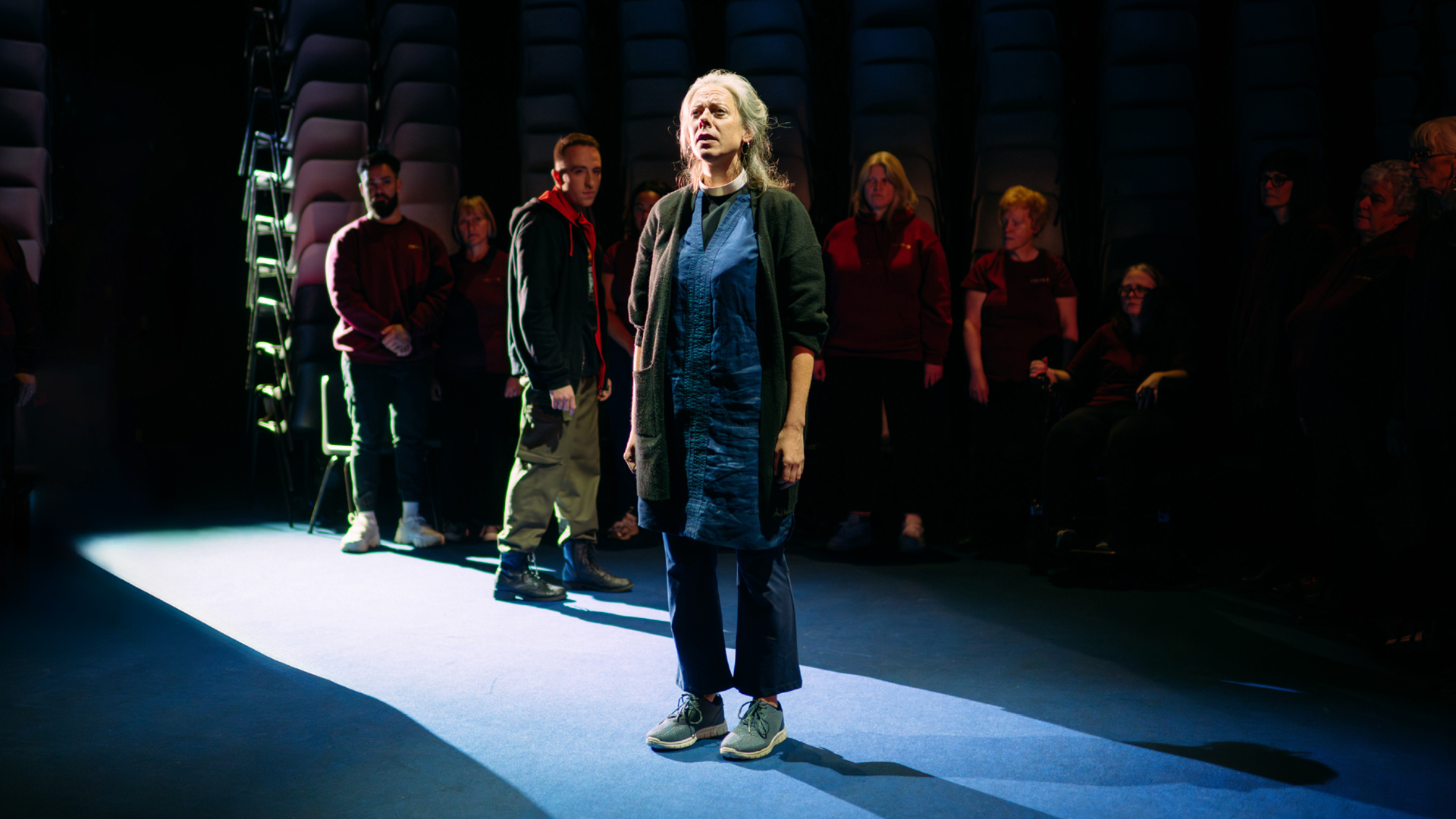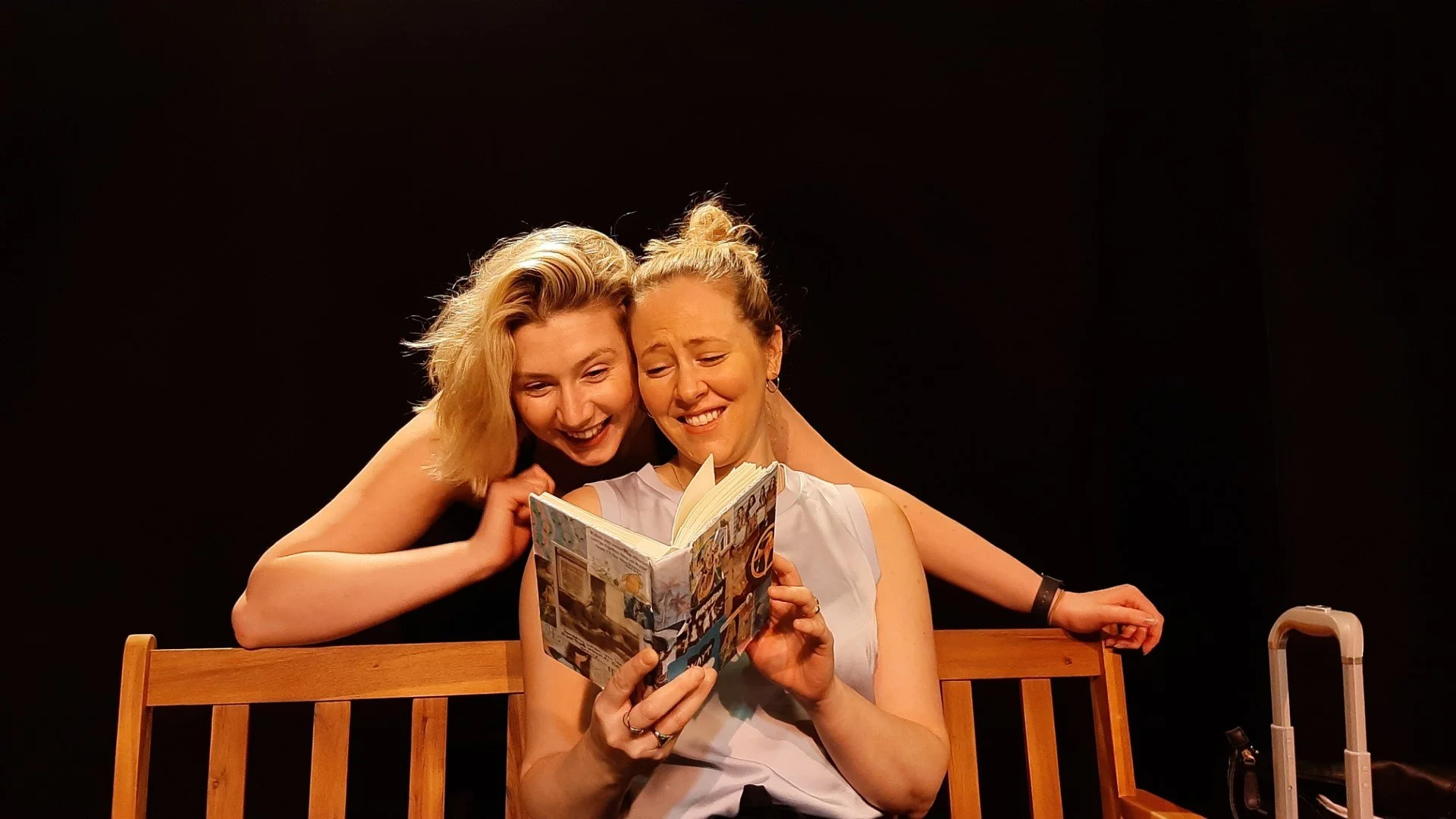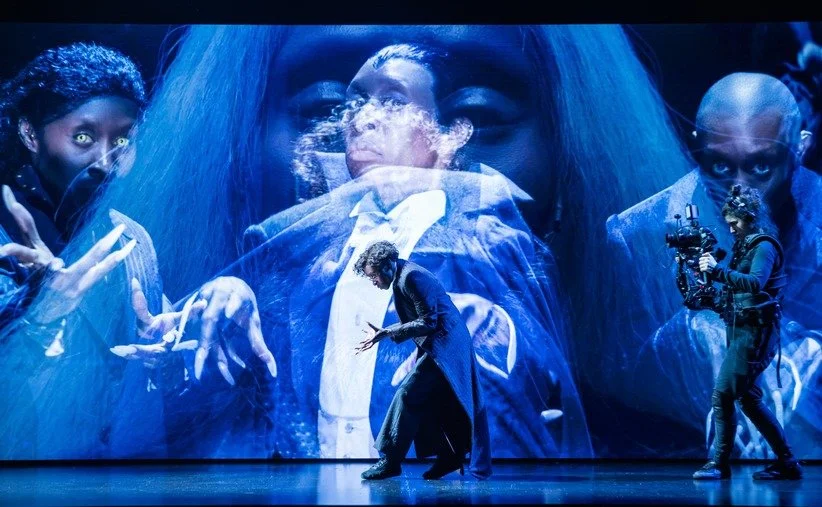The Queen Is Mad, Lion & Unicorn Theatre Review
The Queen is Mad production image. Photo by Lexi Clare
Written by Charlotte for Theatre & Tonic
Disclaimer: Gifted tickets in exchange for an honest review.
Amy Clare Tasker and Tom James McGrath are the latest writers to throw their hat in the ring of early modern royal drama with their new musical following the life of Queen Joanna I of Castile, known more (in)famously as ‘Juana la Loca,’ or Joanna the Mad. With Joanna being the younger sister of Catherine of Aragon, the first wife of Henry VIII, you’d be forgiven for wondering of Tasker and McGrath’s new musical seeks to situate itself in the wake of SIX’s success, but the two shows share almost no stylistic commonalities outside of the familial link.
McGrath’s score, undoubtedly the shining star of the piece, evokes a classic theatrical sound reminiscent of Herman and even Sondheim with its lilting melodies which melt into dissonant, menacing lullabies as Joanna’s world closes in on her. The recurrent musical motif could almost be playback from a broken music box, a foreboding melody creeping toward an inevitable end, an astute sonic parallel to the narrative of Joanna’s horrifying fate.
Certainly, the score also benefits from its expert delivery by Natasha Hoeberigs who stars as the Spanish princess. Hoeberigs’ expert soprano is bright and agile and brings a defiant power to Joanna’s every phrase. She moves seamlessly from the buoyant notes of a hopeful girl to the grounded, haunting cries of a wronged woman, backing up her masterful vocals with equally embodied physicality.
Unfortunately, it is once you step outside the musical world of the show that things begin to fall apart. If you go into the theatre knowing nothing of ‘Juana la Loca,’ you may find yourself spending the first few scenes wondering if this is in fact a modern tale of royalty as the three actors who make up The Queen Is Mad’s cast are outfitted in the sort of fashions one might see at a posh cocktail party. Joanna wears a flowing knee-length dress and her father and husband both sport well-tailored three-piece suits. It isn’t until the princess’s father, the cruel King Ferdinand of Aragon (Alan Vicary), mentions torturing his daughter with the rack that you become more certain we are not in the present day.
This aesthetic departure from the period could present opportunities to interrogate the relationship and relevance of the story to the experiences of modern women. Disappointingly, though, that is not an opportunity that production seems to seize. Rather, The Queen Is Mad moves through Joanna’s life in as biopic a manner as possible given its 60-minute run time, flashing through salient moments of her life which all happen to be moments in which she is being bereaved, controlled, or abused by men. These men, the aforementioned King Ferdinand and Joanna’s husband, Archduke Philip of Austria (Brian Raftery), play almost like Disney villains. They are equal parts comedic buffoons and insidious patriarchs who play the death of Joanna’s family members for laughs in one moment and brutalize her in the next. They could almost be in an entirely separate show from Hoeberigs’ Joanna, who remains a staunchly dramatic protagonist despite the narrative focus on her continued maltreatment.
Indeed, whether you are familiar with the history of the Spanish monarchy or not, it isn’t difficult to predict how this story ends – with Joanna at the end of a self-fulfilling prophecy of madness, locked away and stripped of her power by the men who were meant to care for her. Therein lies the real issue with the piece: what is it trying to say? It is hardly a secret that women have been subject to violent subjugation at the hands of men throughout history, so why continue to reproduce that trauma? As the lights went down on a beaten, hysterical Joanna, I found myself wondering what I was meant to gain from this presentation of her story. The central question dramatists tend to find themselves faced with is ‘why this, why now?,’ and it seems to me that The Queen Is Mad is not quite prepared to answer that question. And while I wouldn’t posit that Joanna’s story isn’t worth telling at all, the show’s failure to engage critically with its source material feels like an oversight that leaves it floundering for a message.
At the Lion & Unicorn Theatre until 23 March 2024.










